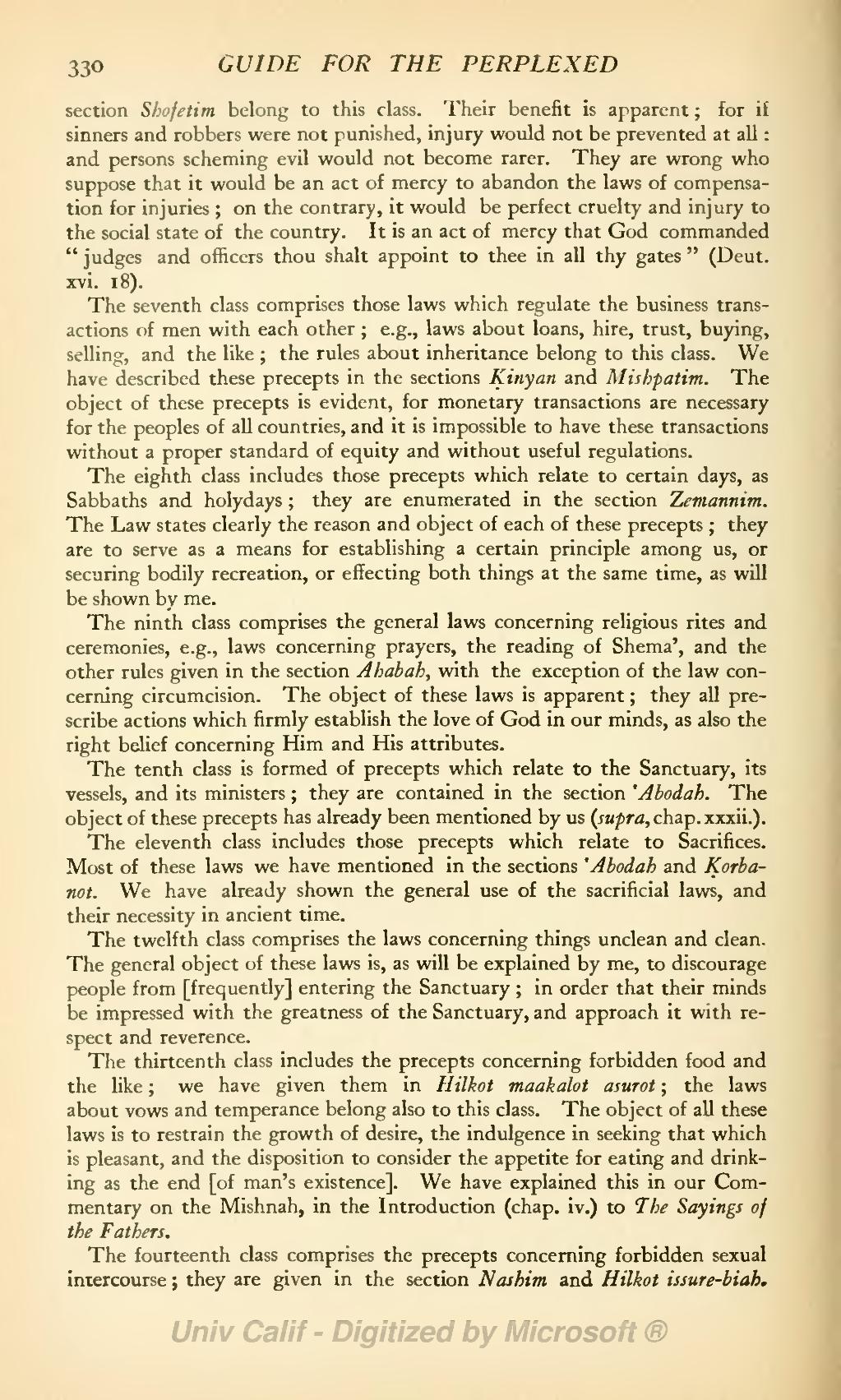Shofetim belong to this class. Their benefit is apparent; for if sinners and robbers were not punished, injury would not be prevented at all: and persons scheming evil would not become rarer. They are wrong who suppose that it would be an act of mercy to abandon the laws of compensation for injuries; on the contrary, it would be perfect cruelty and injury to the social state of the country. It is an act of mercy that God commanded "judges and officers thou shalt appoint to thee in all thy gates" (Deut. xvi. 118).
The seventh class comprises those laws which regulate the business transactions of men with each other; e.g., laws about loans, hire, trust, buying, selling, and the like; the rules about inheritance belong to this class. We have described these precepts in the sections Kinyan and Mishpatim. The object of these precepts is evident, for monetary transactions are necessary for the peoples of all countries, and it is impossible to have these transactions without a proper standard of equity and without useful regulations.
The eighth class includes those precepts which relate to certain days, as Sabbaths and holydays: they are enumerated in the section Zemannim. The Law states clearly the reason and object of each of these precepts; they are to serve as a means for establishing a certain principle among us, or securing bodily recreation, or effecting both things at the same time, as will be shown by me.
The ninth class comprises the general laws concerning religious rites and ceremonies, e.g., laws concerning prayers, the reading of Shema’, and the other rules given in the section Ahabah, with the exception of the law concerning circumcision. The object of these laws is apparent; they all prescribe actions which firmly establish the love of God in our minds, as also the right belief concerning Him and His attributes.
The tenth class is formed of precepts which relate to the Sanctuary, its vessels, and its ministers; they are contained in the section ‘Abodah. The object of these precepts has already been mentioned by us (supra, chap. xxxii.).
The eleventh class includes those precepts which relate to Sacrifices. Most of these laws we have mentioned in the sections ‘Abodah and Ḳorbanot. We have already shown the general use of the sacrificial laws, and their necessity in ancient time.
The twelfth class comprises the laws concerning things unclean and clean. The general object of these laws is, as will be explained by me, to discourage people from [frequently] entering the Sanctuary; in order that their minds be impressed with the greatness of the Sanctuary, and approach it with respect and reverence.
The thirteenth class includes the precepts concerning forbidden food and the like; we have given them in Hilkot maakalot asurot; the laws about vows and temperance belong also to this class. The object of all these laws is to restrain the growth of desire, the indulgence in seeking that which is pleasant, and the disposition to consider the appetite for eating and drinking as the end [of man's existence]. We have explained this in our Commentary on the Mishnah, in the Introduction (chap. iv.) to The Sayings of the Fathers.
The fourteenth class comprises the precepts concerning forbidden sexual intercourse; they are given in the section Nashim and Hilkot issure-biah. The
